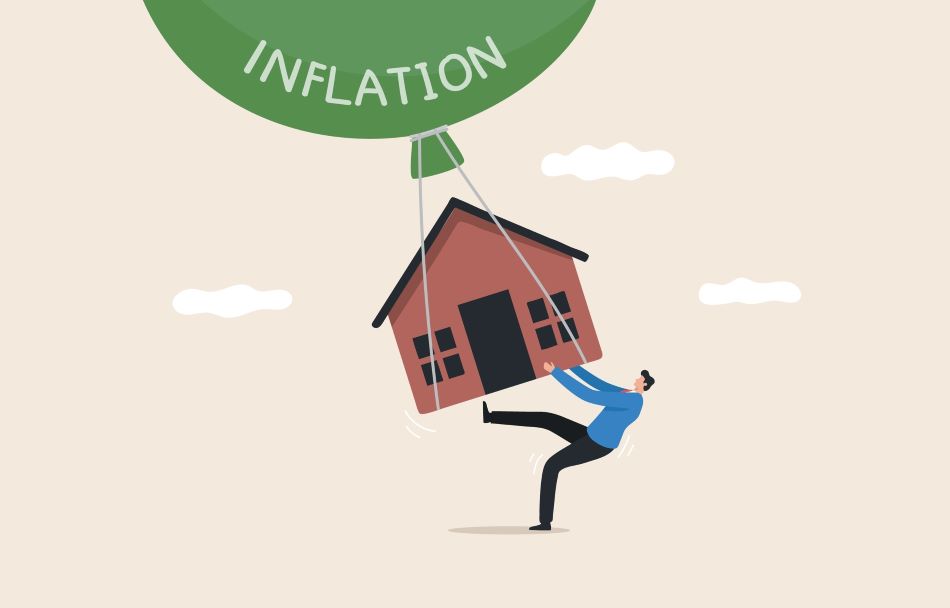


The States' annual meeting on their priorities opened with a debate about housing. A good place to start, probably. If there is consensus about anything, it's that the island is in the middle of another housing crisis.
Debate on the States' Work Plan was always likely to be dominated by the difficulties of getting onto and up the housing ladder, whether renting or buying, at a time when too much demand is chasing too little supply.
Of course, it's not a new challenge. Guernsey has faced housing crises periodically in recent decades. This is perhaps unsurprising for an island more prosperous than most places which is already quite densely-populated and always struggles with the enduring, self-inflicted wound of ribbon development.
But this crisis is as bad as any before it and worse than most.

Pictured: Over the past 40 years, the cost of buying housing in Guernsey has become vastly less affordable relative to earnings.
The litmus test of housing affordability - what policymakers call the price to earnings ratio - tells us that the average price of a local market property is now around 16 times the average earnings of a single person.
Staggeringly, this is up from three or four times in the space of 40 years - when those now approaching pension age were typically buying or renting their first homes.
Yes, interest rates were higher then. But nowhere near high enough to make monthly repayments on comparable mortgages as draining - or, for too many people, as unattainable - as they are today.
Most deputies can see the problem and there is no lack of will among them to do something to alleviate it. At this week's meeting, a few of them have been moving beyond observing the problem and putting forward ideas and proposals in response to it.

Pictured: Deputies Peter Roffey and Lindsay de Sausmarez are putting forward a scheme which they say would "promote home ownership".
For example, Deputy Peter Ferbrache, who wants to provide developers with more flexibility on larger developments, which he hopes could encourage supply, and Deputy Peter Roffey, who wants the Guernsey Housing Association to be required to offer some new homes for sale at 75% of their market value.
These ideas and others like them are admirable, worthwhile and may help - if only a little, at the edges of the market, and at some time in the future.
There is, though, a gaping hole at the centre of this week's States' debates about housing.
It's not lack of understanding or lack of determination or even lack of agreement.
What's missing is an objective - or clarity about the desired outcome.

Pictured: The average cost of a local market home in Guernsey reached £573,000 in the first quarter of this year.
States' committees and deputies between them have written reams recently about how they need to intervene more in the housing market. But to the best of my knowledge - and I have been listening carefully - not one of them has even started to explain the outcomes they are pursuing.
In other words, what does good look like in a year's time or in three years or five years?
Increasing the supply of housing is often put forward as the principle answer to the housing crisis. That may be a reasonable policy response, but if so it's a means to the outcome rather than the outcome itself.

Pictured: Deputy Peter Ferbrache's Policy & Resources Committee has said "the island's housing needs and the increasing cost of living are the two most pressing and immediate domestic pressures which the States must tackle", but it has not described what the housing market will look like if it succeeds.
In most other areas of policy, there is some attempt to describe the intended outcome before taking action. In education, more resources might be agreed to try to improve average results by one grade. In healthcare, more nurses might be employed to try to improve cancer survival rates. In tax policy, rates might be lowered to try to put another percentage point on economic growth.
It's not unkind or inaccurate to say that the States, despite potentially being on the verge of spending tens of millions of pounds intervening in the housing market, do not know what they want to achieve.
Or, if they do know what they are trying to achieve, they are not telling us.
Could that be because the only outcome which would truly alleviate the affordability crisis is for house prices to go into decline?